Women, work and adaptive capacity: enhancing the adaptive capacity of vulnerable women
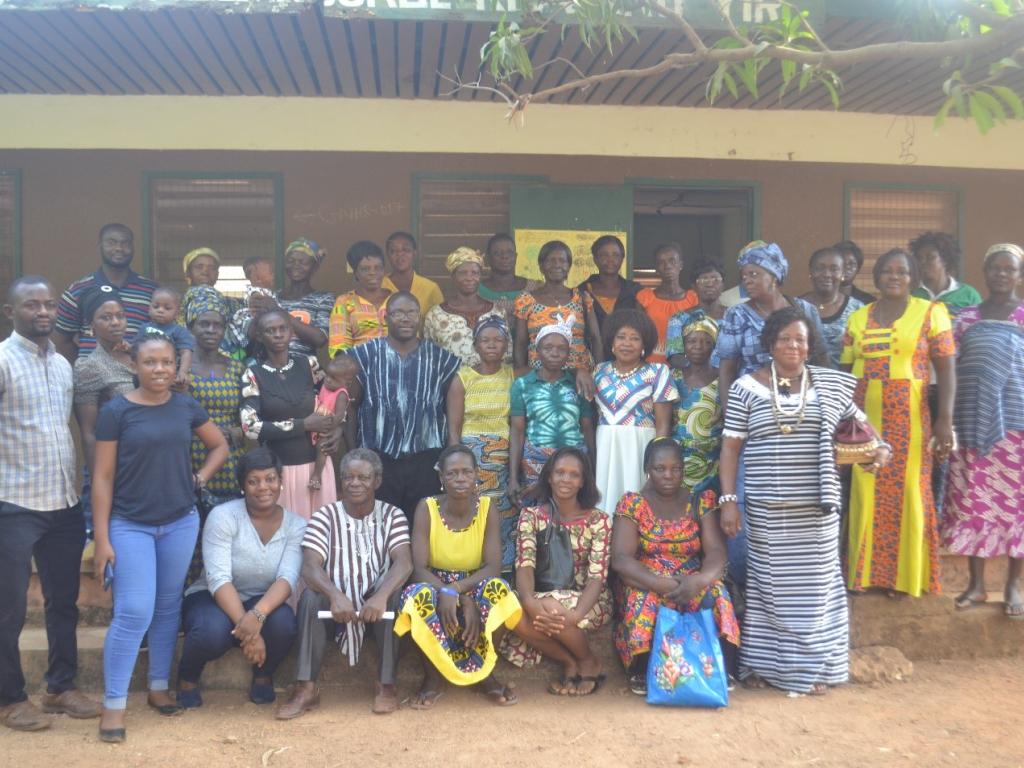
By Rahinatu Sidiki Alare, Rose Buabeng, Prosper Adiku and Prince Ansah from the ASSAR Ghana team
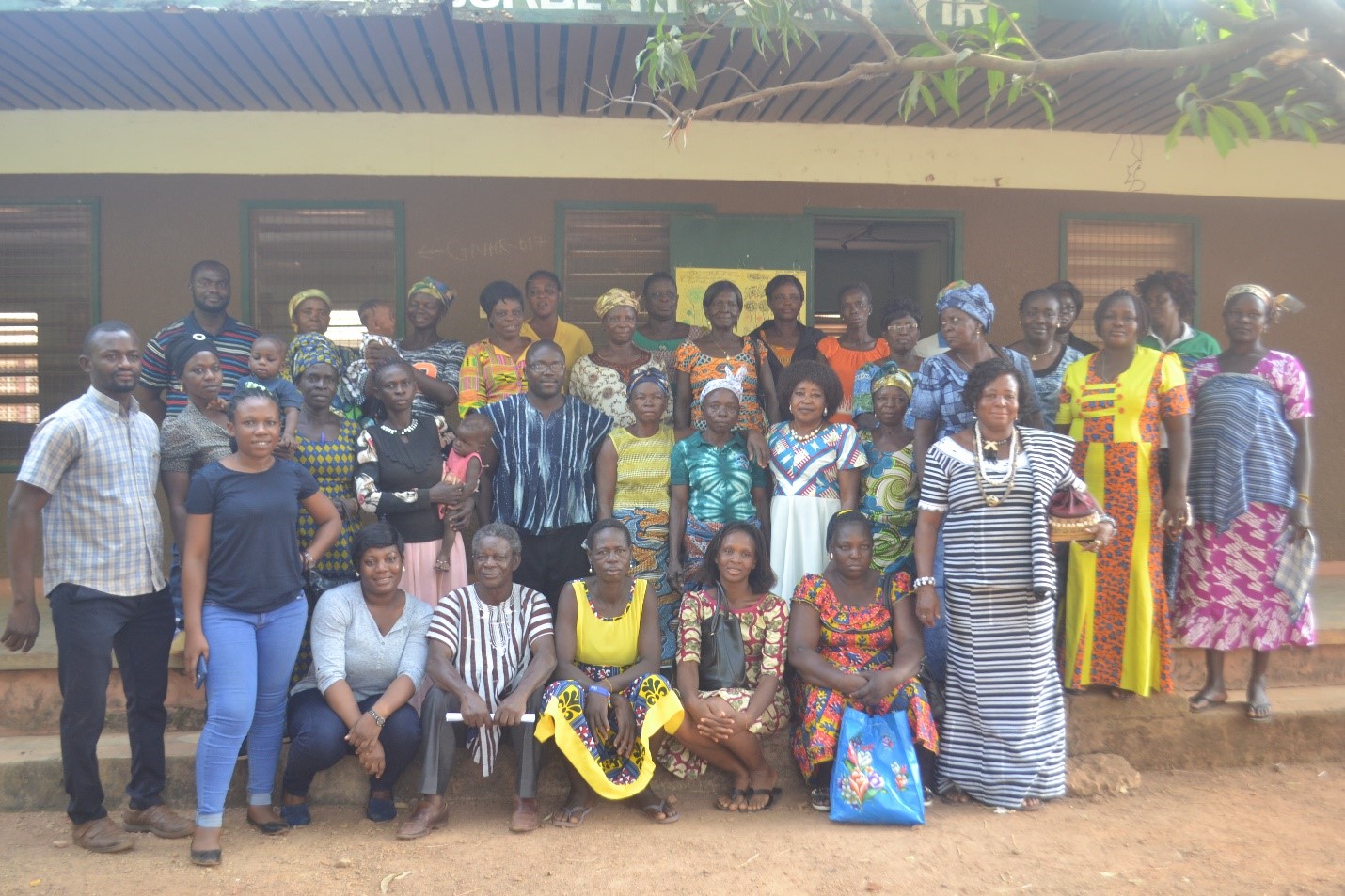
In the Upper West Region of Ghana, climatic and non-climatic stressors affect the most vulnerable in society, especially the elderly, widows, young unmarried and even married women who lack support from relatives. According to research carried out by the ASSAR project, traditional patriarchal roles have favoured males and promoted structural inequalities among females in terms of decision making, access to and control over land for agricultural activities and the ability to engage in more productive livelihoods. Consequently, various women self-help groups (SHGs) have emerged as an important social safety net that helps overcome many of these barriers by reducing vulnerabilities and increasing the resilience of women and their households. These self-help groups are set up to provide financial and other livelihood support for their members, empower women through skills development and the promotion of diversified livelihood options at the local level. Despite the advantages, SHGs are often limited in number and lack the needed capacity, skills and opportunities to be effective and sustainable.
It is against this background that ASSAR Ghana, in collaboration with the Nandom Deanery Integrated Rural Development Programme (NANDIRDEP) and with support from START International, organised a two-day capacity building workshop on 15 and 16 January for community level women leaders from the Lawra and Nandom districts. The aim of the ASSAR Grant for Local Adaptation Support (ASSAR-GLAS) workshop, held at the Farmers Hall in Nandom, was to enhance the adaptive capacities of women by introducing them to eco-inclusive businesses (using the LEAN Business Canvas as a guide), advocacy skills and business networking. Participants were also introduced to where and how they can access credit in order to improve their livelihoods and procedures in registering their businesses.
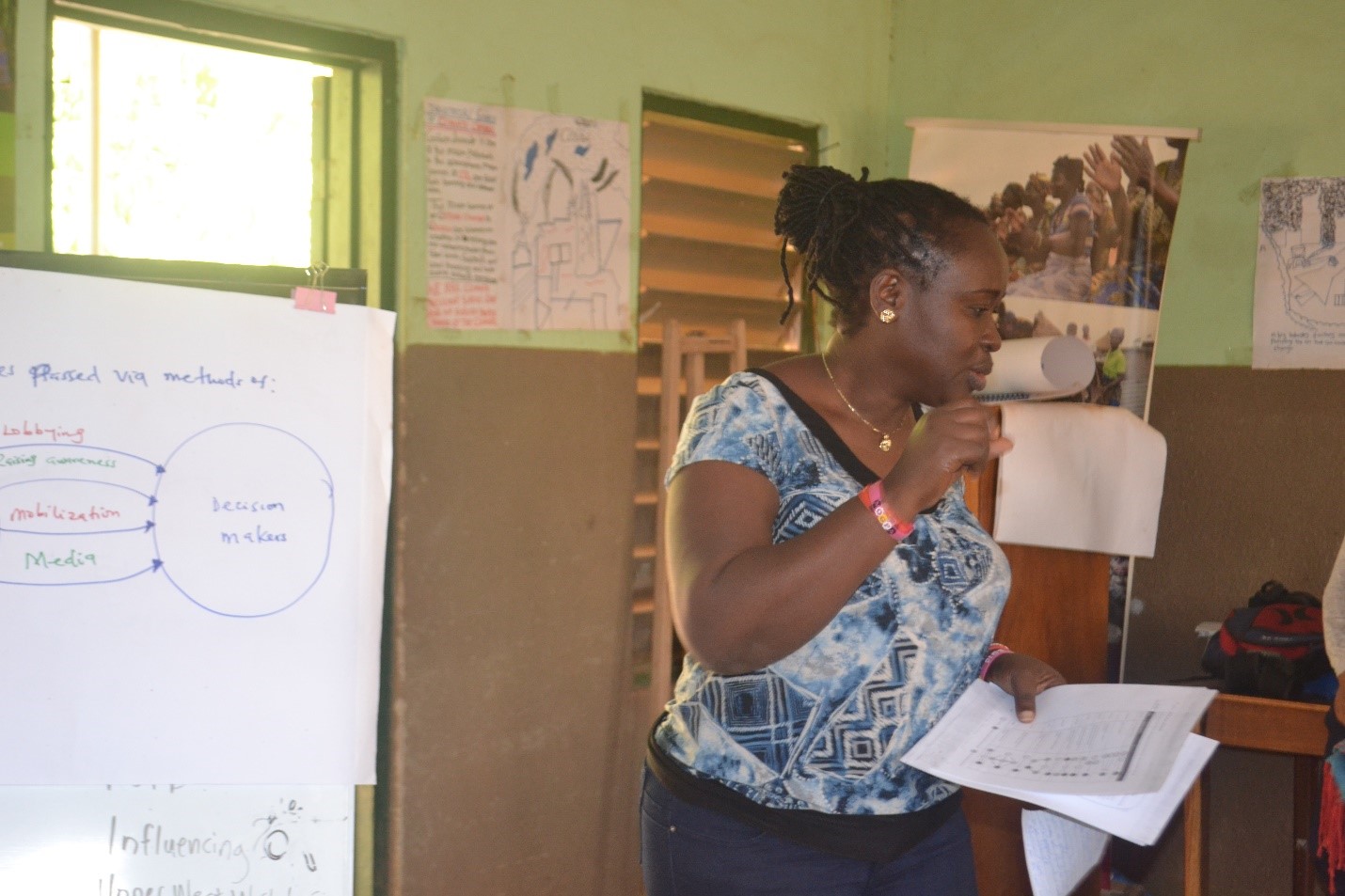
About 30 women champions involved in leading, coordinating and training self-help groups (SHGs) in key livelihood activities, such as groundnut and shea butter processing, soap making, smock weaving, as well as representatives of village saving and loan associations (VSLAs) in the Lawra and Nandom districts, were involved in the training. Representatives from the Centre for Indigenous Knowledge and Organisational Development (CIKOD), the business advisory centres (BACs) and planning and gender desk officers also made presentations focused on existing opportunities and financial support schemes available to women groups in the two districts.
The women leaders were taken through various factors that needed consideration in alternative livelihood activities, particularly agro-processing and how to adopt the LEAN Business Canvas in testing the validity of new business ideas as well as in reviving existing ones through value addition, branding, effective customer targeting and marketing.
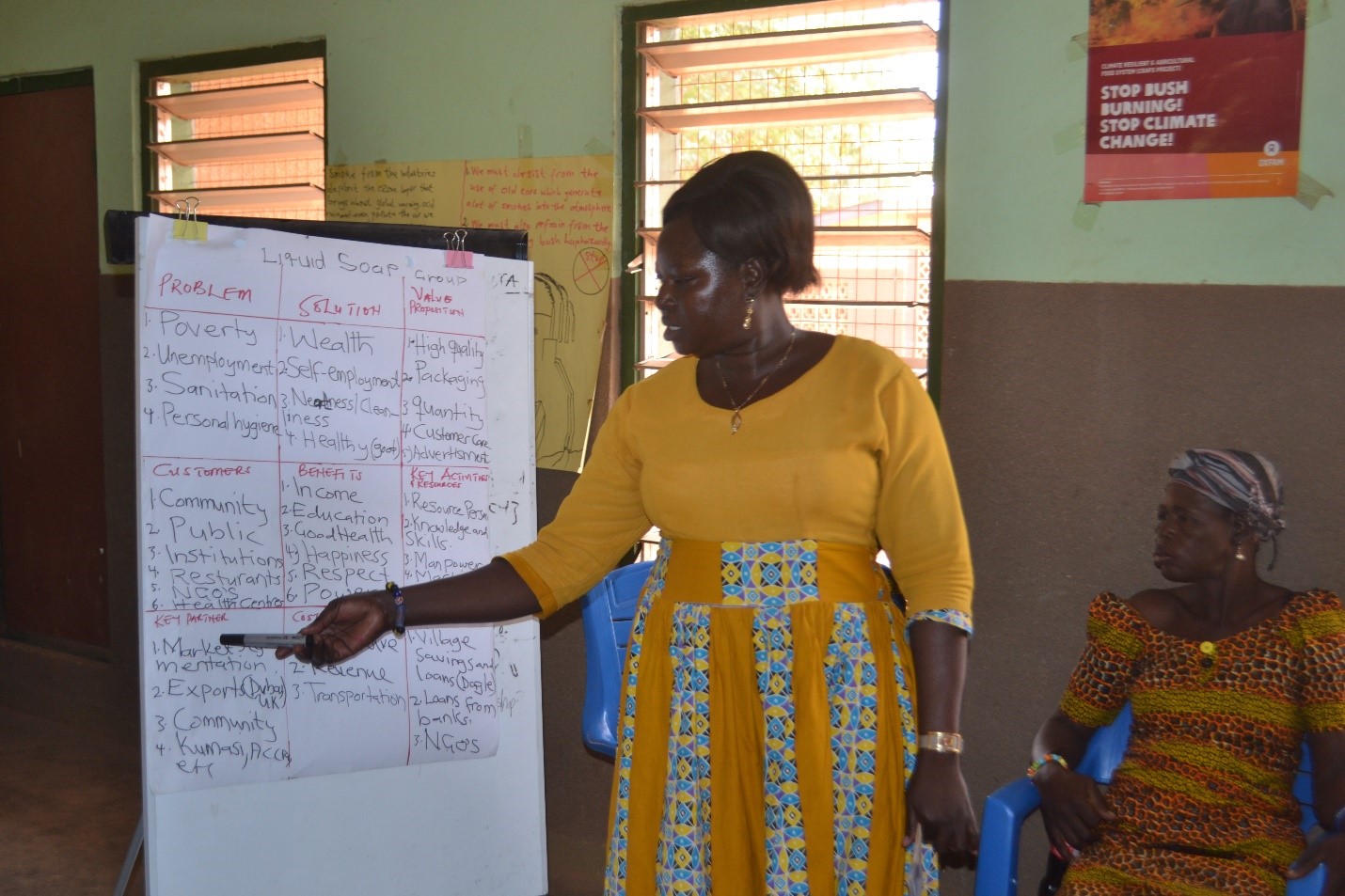
Overall, the participants were impressed with the workshop in terms of the capacity and the value of information provided and how that will help them impact the various groups they lead. This is what Pognaa Maabuora I, Queen Mother of Nayagri community and a member of the Lawra Traditional Council of Queen Mothers, had to say about the capacity building workshop:
"I have acquired additional knowledge on the use of some of our local products, for example, using shea butter to make soap in the absence of palm oil. I have also learnt additional advocacy skills which I will share with my fellow queen mothers to help in changing bad behaviours and promoting development programmes in our districts."
Catherine Kyidem, a workshop participant from Nandom and leader of a group involved in soap and pomade making, commented:
"I have learnt a lot from this workshop, especially about marketing. Most of my group members do not know how to start a business, how to retain their customers and how to package their products to make it marketable. Also how to access loans – I never knew that we could access loans from MASLOC as a group to enhance our businesses."
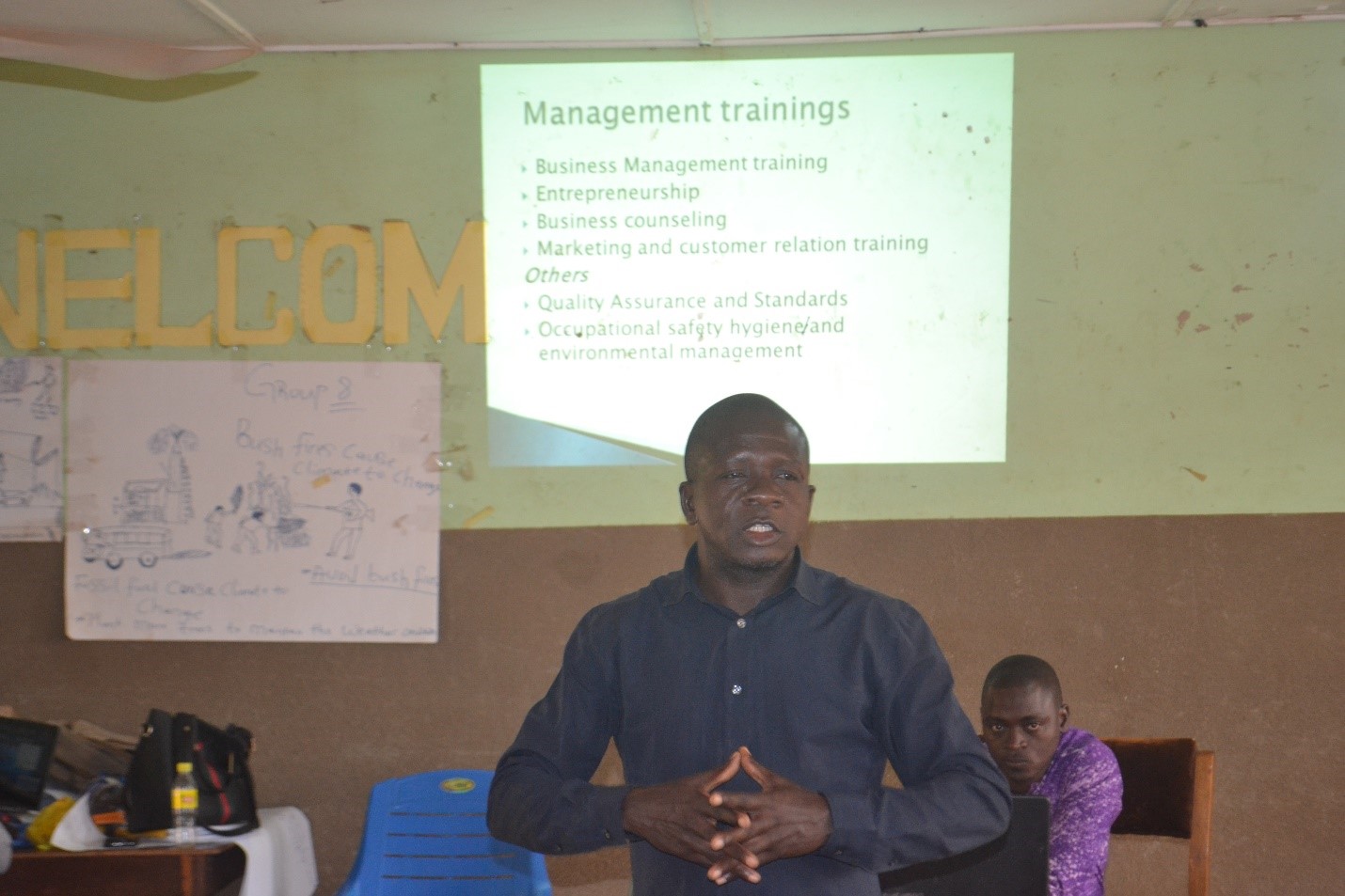
To sustain action on the various items on which capacities were built, an SHG Leaders’ platform was created for the women leaders to focus on promoting women business enterprises, advocacy and empowerment for enhanced adaptive capacities in the two districts. An action plan for the platform activities has been discussed and the ASSAR Ghana team will facilitate post-training activities and ensure the essential networks required to enhance the building of the needed skills, capacity and networks for the promotion of adaptation and livelihood activities at the local level, are achieved.
This workshop is part of a series of ASSAR Ghana’s Research into-Use (RiU) activities in response to the adaptation challenges identified in its research activities. It is also in line with the ASSAR West Africa impact pathway on building skills and capacity of local champions who promote adaptation activities at the local level. The workshop was facilitated by technical officer Rahina Sidiki Alare and PhD student Rose Buabeng, both from the University of Ghana's Institute for Environment and Sanitation Studies (one of ASSAR's partners in West Africa), with technical support from SEED. SEED is an initiative under the Switch Africa Green project that promotes eco-entrepreneurship in Africa for sustainable development.
| The grants for the implementation of these activities are in recognition of the need to go beyond academic capacity building within ASSAR to do more to strengthen the capacities of those living and working in the ASSAR study sites. The Grants for Local Adaptation Support (GLAS) are intended to draw on the findings of ongoing ASSAR research to support the most vulnerable groups in each region on overcoming top barriers to and supporting enablers of their adaptation. |